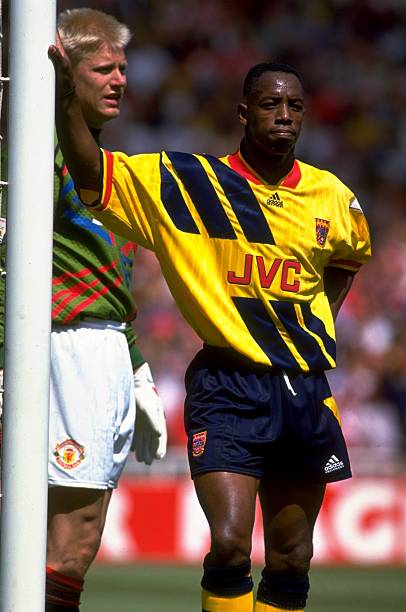3 November is Ian Wright’s birthday, and in honour of that, here is one of his biggest fans, Paul Williams, with a profile of the great man.
Thinking about something to write this weekend… well, I didn’t have to think too hard. I thought a look back at the career of Arsenal legend, Ian Wright, may be in order.
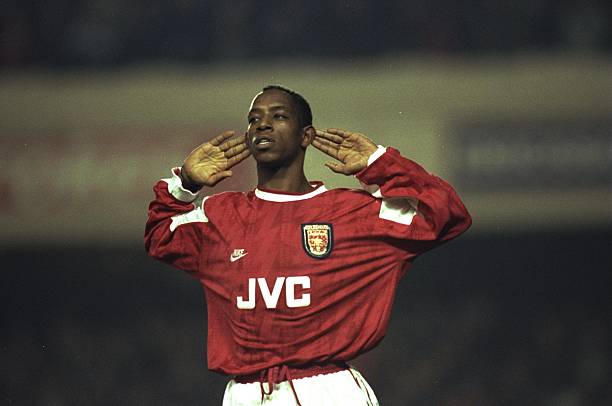
Ladies and gentlemen, I give you Ian Edward Wright (MBE). Or, simply, Wrighty.
Wright’s goalscoring exploits, 185 goals in 288 appearances for Arsenal, don’t tell the full story. For a start, there’s the question of how many more he would have scored had he not been so frequently suspended.
That’s a joke, but it’s fair to say that the numbers do not do this goalscoring machine justice.
Watch the videos, this was no Lineker type 6-yard-box predator.
Okay, he was, but there was so much more to Wrighty than that.
He scored with his left, he scored with his right and when we played the Tottenham… He could do it from distance, chips, volleys, one-on-one he rarely missed and he even, occasionally, scored with his head.
It’s true, I saw it happen with my own eyes!
And then there was the sheer exuberance of the man.
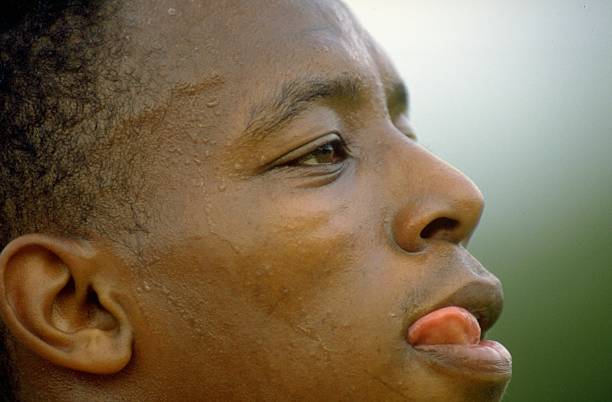
Part of Wrighty’s enduring appeal – I’m conscious here that 18-year-olds like my cousin James have never seen the man play, which is a real mind melt – lay in his sheer passion for the game. He played as if he was one of us, and he played as if his life depended on it.
Wrighty first grabbed the national spotlight back in the days when the FA Cup Final still had the spotlight it deserved. Saturday, 3pm, the final act of the domestic season.
In a scenario, ironically to be repeated on both occasions Arsenal made the final during Ian’s time with the club, he was involved in a race against time to be fit for the final.
Having broken his leg, he’d missed Palace’s dramatic semi-final win against Liverpool – to this day, one of my favourite games of football. When the final came around, he was only fit enough for the bench.
When he emerged from the bench, Palace were losing 2-1 but Steve Coppell had just gone for his nuclear option.
72 minutes, Wrighty had been on the pitch three minutes, he brushed off a challenge on the corner of the box, cut inside another- leaving the defender on his arse in the process-and fired Palace level.
Even now, I remember the passion of the celebration more than the goal. Two minutes into extra time, Wrighty volleyed Palace into the lead.
Could they hold on? No. And they would lose a much less thrilling replay, but this human buzzbomb had seared himself into the national consciousness.
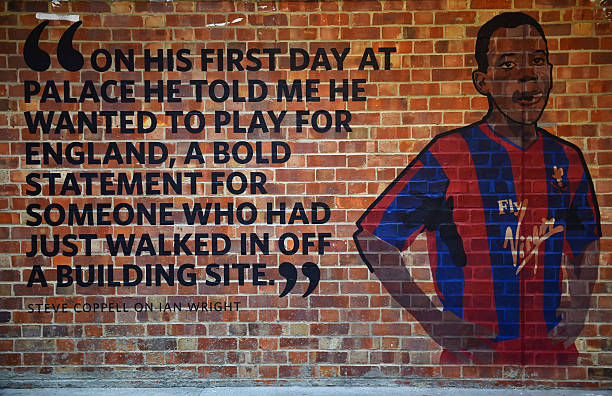
In September 1991, Arsenal were champions of England but George Graham was planning an assault on Europe and wanted more firepower in his team. He went and spent £2.5m on the Palace man.
Ironically, Arsenal would be eliminated from the competition before Wright could make his debut. Now there’s a “what if” for the ages, what if Wrighty had been available against Benfica? What might have been achieved in that season?
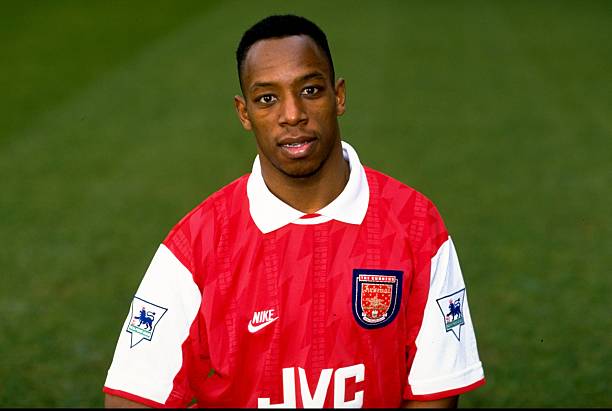
I digress.
Wright made his debut in the League Cup at Leicester City, he scored. He made his league debut at Southampton, he scored a hat-trick (the first of two against them that season).
He said later, “I remember the fans singing ‘What a waste of money’, they didn’t sing it after that game.”
The goal rush had started, and it wasn’t going to stop.
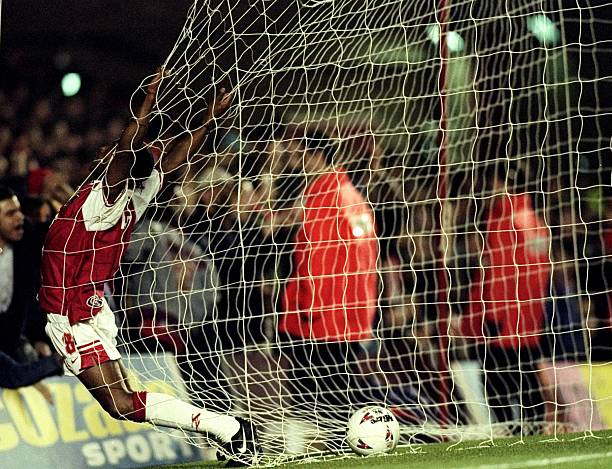
The highlights were a four-goal haul against Everton, two in a late-season game against Liverpool (upstaged, for once, by Anders Limpar’s 45-yard lob), the first of many against Spurs.
Then there was that second hat-trick against Southampton. I have a theory that this game, the last in front of the old North Bank was the one that really saw Wrighty taken to the hearts of the Gooner Nation.
Despite a thrilling finish to the season, our outgoing champions were not going to finish any higher than 4th. But on a day full of emotion for anyone who stood on that old terrace, Ian Wright could still beat the golden boy of English football, Gary Lineker, to the Golden Boot. Lineker was playing for that lot up the road.
He was also a goal ahead of our hero. And he scored a first-half goal at Old Trafford.
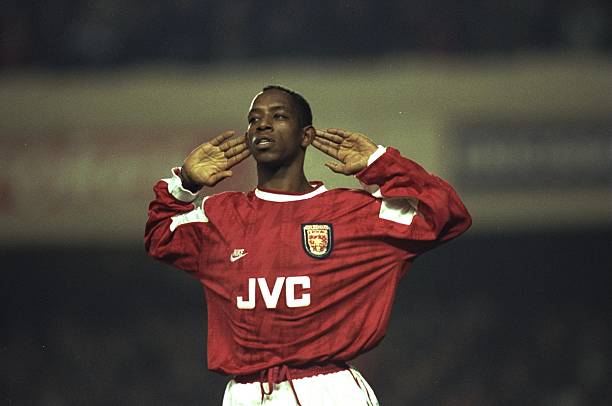
*Cue the Rocky soundtrack…*
A second-half penalty took Wrighty to within a goal of Lineker. Then the magic took over.
As the game entered injury time, David Seaman pulled a cross out of the north London sky and bowled it out to the striker loitering in the left back position. Sprinting over the half-way line, he briefly slowed-up as he made into the box, stepping inside a challenge and firing the ball into the same corner which would grant Thierry Henry immortality 11 years later.
It wasn’t over yet, though.
Under a high ball, on the edge of the Southampton box, “Smudger” Smith muscled a defender out of the way, the ball bouncing off him, via Kevin Campbell’s left ankle. Ian Wright paused, then strode onto the ball, with the North Bank goal gaping, and the ball- improbably- bounced off his shin and into the opposite corner to the one he’d found just moments earlier.
If you see the reaction of the Arsenal players to this goal, it’s as if he had just won Arsenal the league rather than just denying a Spurs player a moment of glory.
Of course, it was a bit bigger than just that boot, though. It was about that old terrace and providing the fans massed on it the appropriate send-off.
It was Wright’s 24th goal in 30 league matches for the Arsenal. By any measurements, an astonishing season.
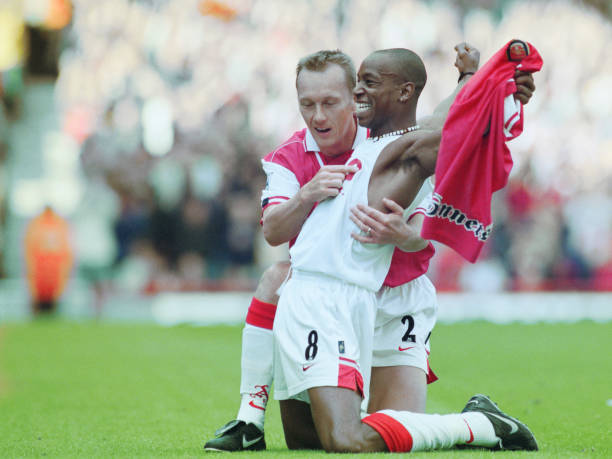
He still didn’t make Graham Taylor’s squad for that summer’s European Championships. An oversight Taylor must have come to regret as England were eliminated at the group stage.
The following season, with Wrighty’s great mate, the Arsenal legend David Rocastle sold to Leeds and replaced by a Danish midfielder of “I saw John Jensen score” fame, was disappointing. At least, in the context of the inaugural Premier League season.
Wrighty seemed to be either suspended or injured throughout much of it. But at least we had a couple of nice, shiny cups to look at by the end of the season.
Wrighty would play a big part in the winning of both cups. He didn’t score in the Steve Morrow final against Sheffield Wednesday. However, in the semi-final which preceded it, he scored twice in our 5-1 aggregate win over his old club, Crystal Palace.
Clearly, if there was an FA Cup Final to be had, he was saving himself for that. As it turned out, that would also be against Sheffield Wednesday.
I don’t think I will ever forget the look on Wrighty’s face, as he opened the scoring in the 1993 final with a header, as long as I live. Caught between pure emotion and exhilaration, you wonder how he functioned on a football pitch.
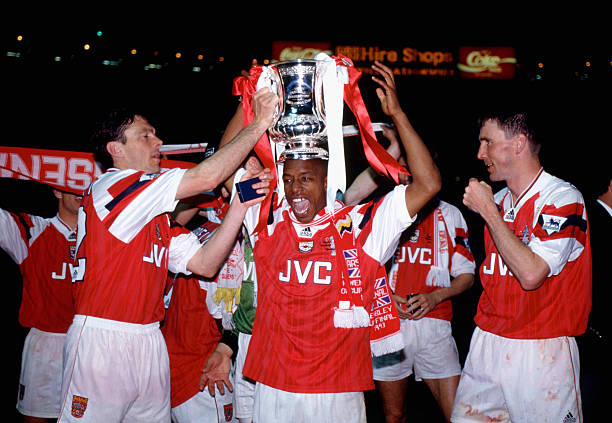
Just like two years earlier, Wrighty would be denied the winning goal, David Hirst’s second half equaliser enough to take it to a replay.
This time, though, there would be a happy ending. Racing onto Alan Smith’s first half flick, Wrighty lifted ball over the onrushing Chris Woods and into the net. Chris Waddle would cancel out his goal, but in the very last action of the final Andy Linighan powered home a header from Paul Merson’s corner and broke Sheffield Wednesday hearts.

